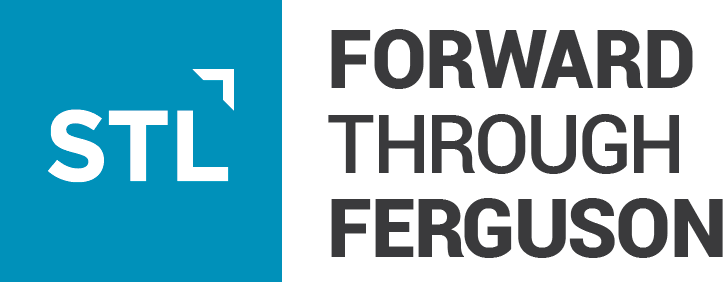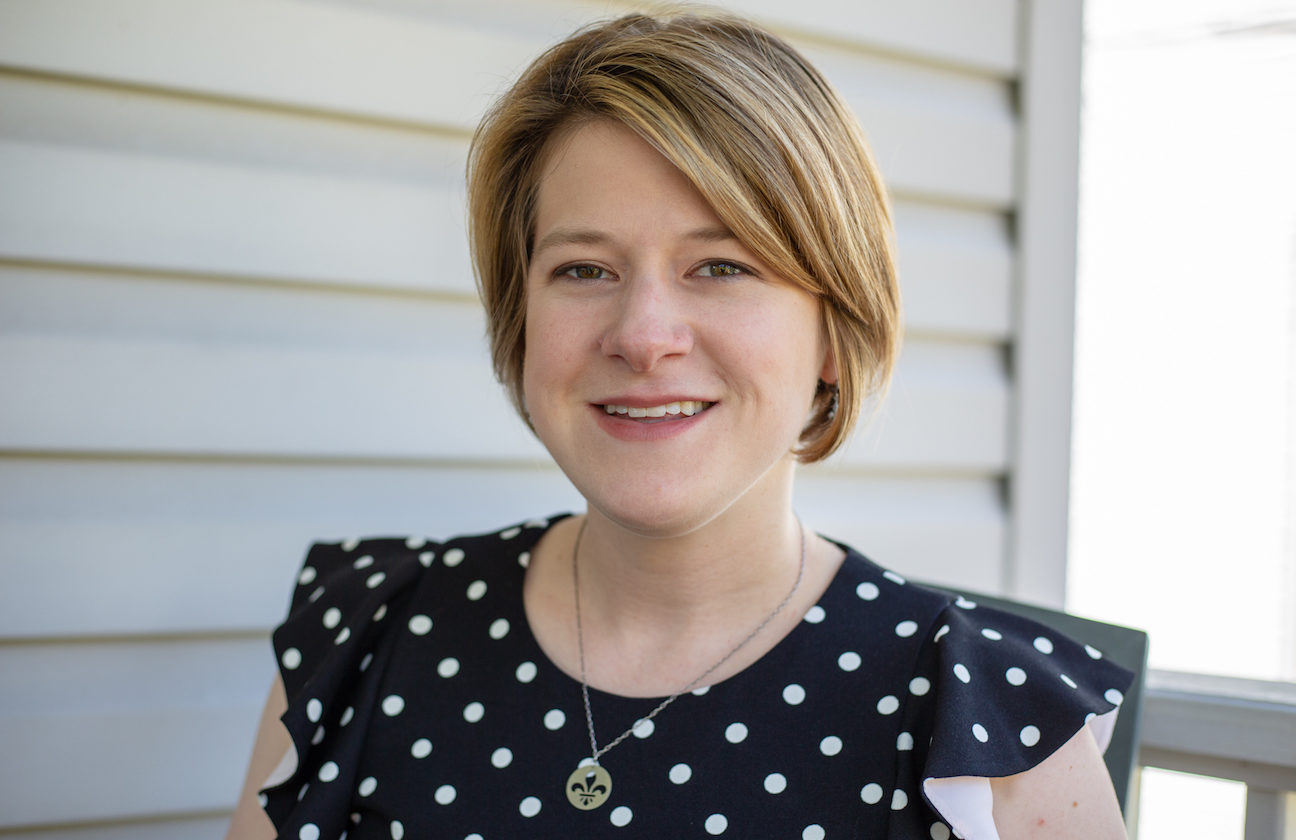Part of the #FiveYearsLater #STL2039 series with Humans of St. Louis
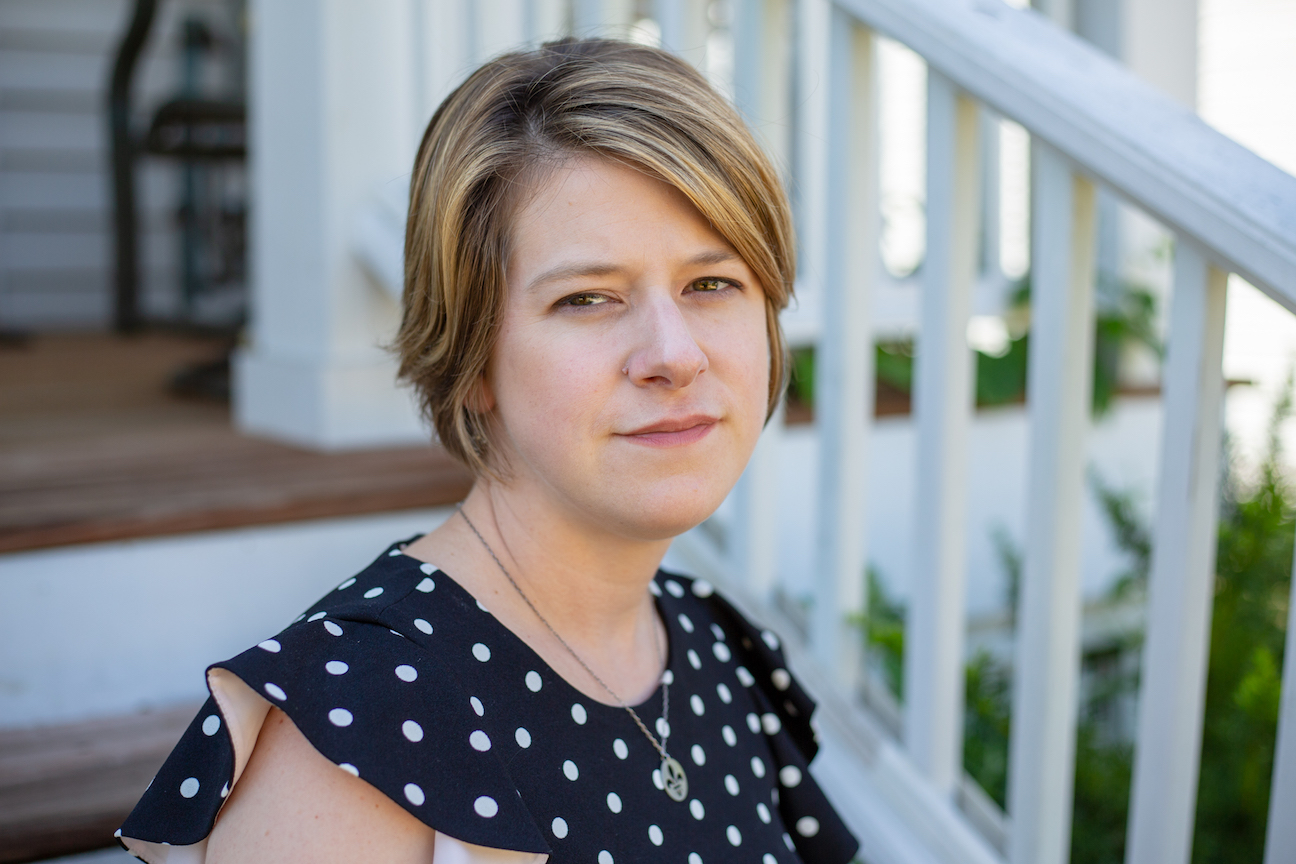
Lisa Clancy, Photostory by Colleen O’Connell Smyth/Humans of St. Louis
After the non-indictment of Jason Stockley in 2017, I answered some calls to action from young activists who said, ‘We need White people to join us in the streets and protest this decision.’ I still have that visceral image of the young boy, who was maybe 12 years old, being wrestled to the ground in the Galleria by a police officer while his grandmother looked on. The police made mass arrests and there was confusion about whether or not the protestors received a call to disperse. People were just exercising their right to free speech. That made me ask myself, ‘What has changed?’ So the first time I set foot in St. Louis County Council Chambers was because the Justice, Health, and Welfare Committee convened a hearing about the Galleria protests.
I didn’t feel represented in that moment and in the context of a lot that happened in the years after Michael Brown was killed. After that I thought, ‘Hell, I’ll just run for county council.’
It was supposed to be a space to hear from members of the public. Blue Lives Matter law enforcement folks were yelling at protestors. My councilperson didn’t even show up and I felt like he was ignoring the problem. He hadn’t made a statement or shown any level of leadership. I didn’t feel represented in that moment and in the context of a lot that happened in the years after Michael Brown was killed. After that, I thought, ‘Hell, I’ll just run for county council.’ So I started doing my homework.
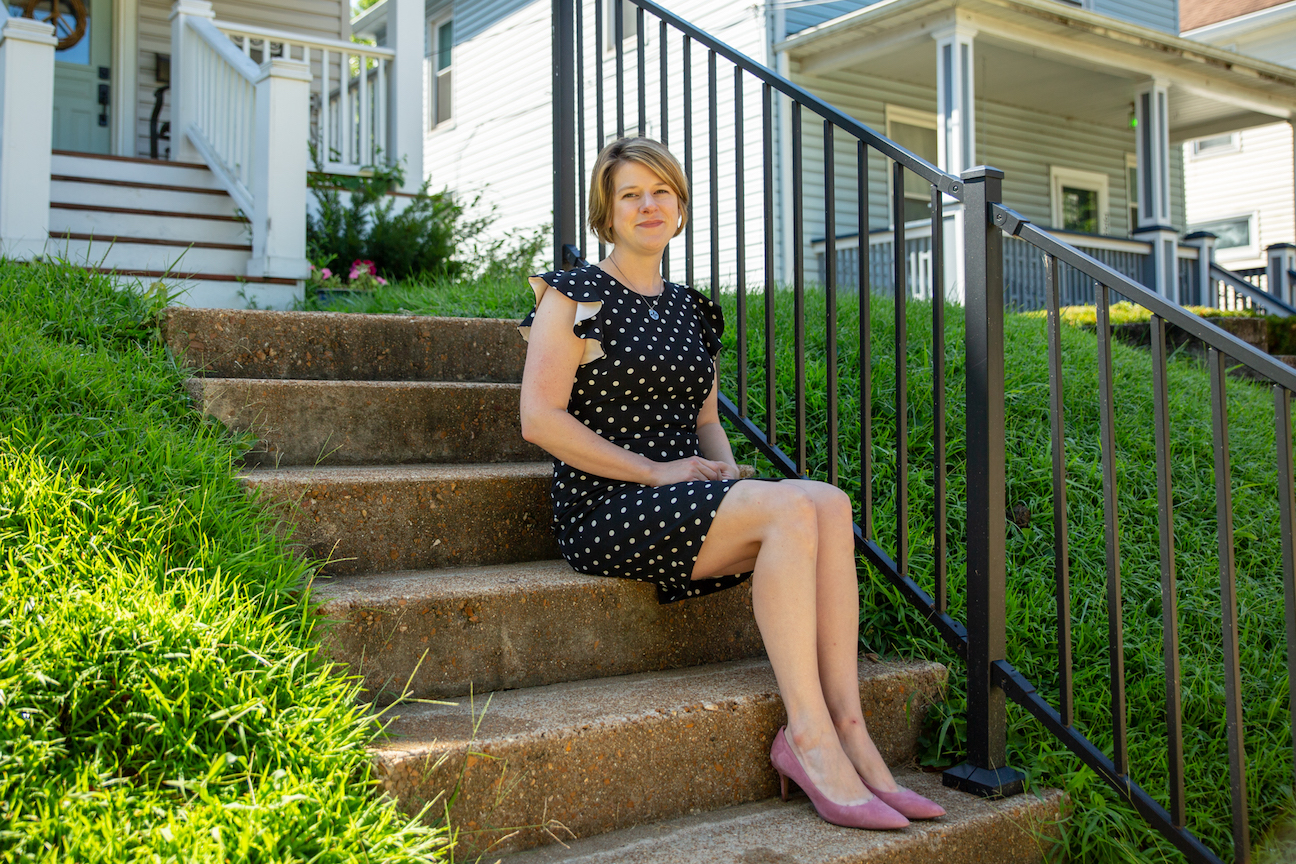
I had been around politics enough to know that you just don’t decide to run. You’ve got to be smart about it and you have to have a pathway to do it. I began talking to folks and assessed that I would have a lot of support on issues including Racial Equity. And there were people who shared my opinions about the county government who weren’t feeling represented by our leaders. I had between January and March to file to run, but I stood back for a little bit. I was waiting for someone else to step up. I thought, ‘If someone great steps up, I want to be a part of supporting that.’ I even put feelers out and gave people some nudges, but nobody did. I filed on the very last day. There were definitely some pieces of me that said, ‘This is crazy. I’m not going to do it.’ I tried to talk myself out of it, but my husband could tell I wasn’t okay with not running. I’m not a huge gut feeling person, but this was one time I felt my gut say, ‘You gotta do this.’ It was scary. I drove up to the board of elections with my brother, my husband, and my son. Afterward, I was like, ‘What did I just do?’ But, I did it. And I ran against an incumbent who had been there for eight years and had the backing of organized labor. There were a lot of rational reasons not to do it, and a whole lot of reasons to do it. So here we are.
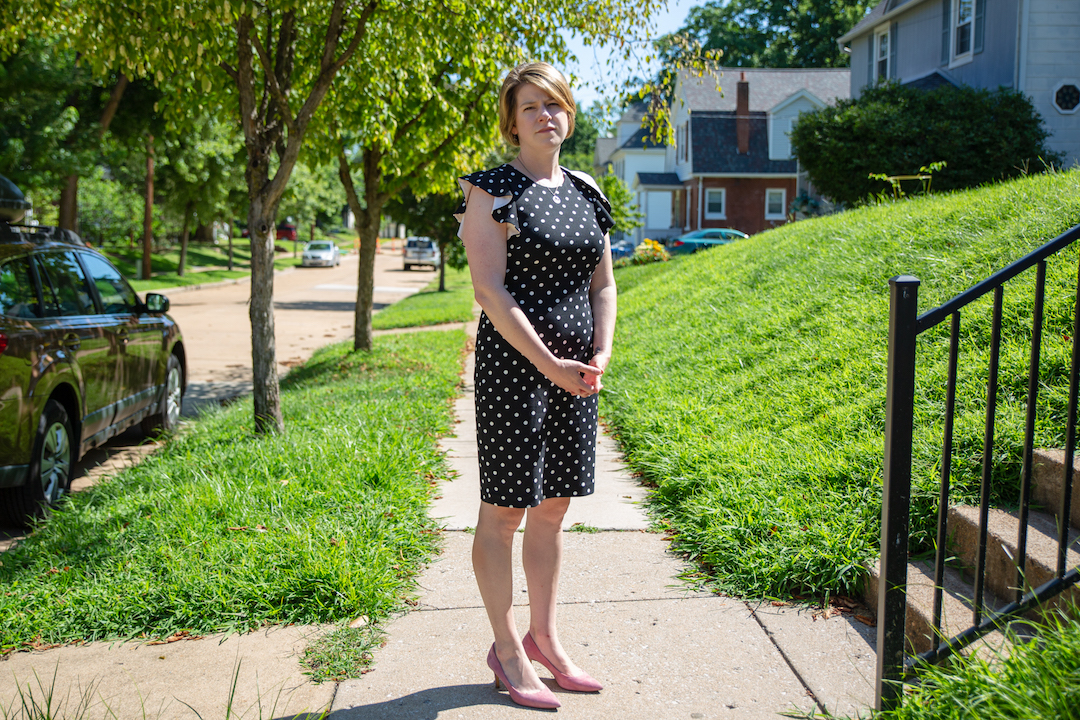
Michael Brown’s killing exposed a lot of wounds in our region. It was really eye-opening to hear so many people don’t feel safe and protected by law enforcement. I started thinking, ‘How does that show up in my immediate community?’ So police reform was one of the first places I took action at a local level.
The big catalyst for these conversations was in 2017 with Proposition P, a sales tax increase to build revenue and promote public safety and law enforcement. I knew it would pass overwhelmingly in the county, they would get something to the tune of tens of millions, and it would be dispersed to municipalities depending on their population, not their need. I knew that there were people that saw it as an opportunity to double down on law enforcement. I saw it as an opportunity to resource some of the calls to action that the Ferguson Commission and other activists have called for.
Michael Brown’s killing exposed a lot of wounds in our region. It was really eye-opening to hear so many people don’t feel safe and protected by law enforcement. I started thinking, ‘How does that show up in my immediate community?’ So police reform was one of the first places I took action at a local level.
I started talking to people, realizing I wasn’t the only one concerned about this, and got together to strategize with neighbors in Maplewood and Richmond Heights about how we could ensure that there was community voice in how we were spending our Prop P money. We knew anecdotally from observations, interactions, and conversations that not everyone feels safe and it cuts along racial lines. We did some surveying and knocked on doors in areas that tend to have higher concentrations of people of color. We had a couple of community meetings, and we delivered a report to Maplewood City Government and Police Chief. We told them, ‘Here’s some data that you might use to inform how you use the money. Here’s how people feel. Here’s how we see opportunities.’
What is really important to me is to advance public safety. We’re all safer when we trust each other. And we can’t truly advance public safety until we’re doing things we know are going to help build trust between citizens and law enforcement.
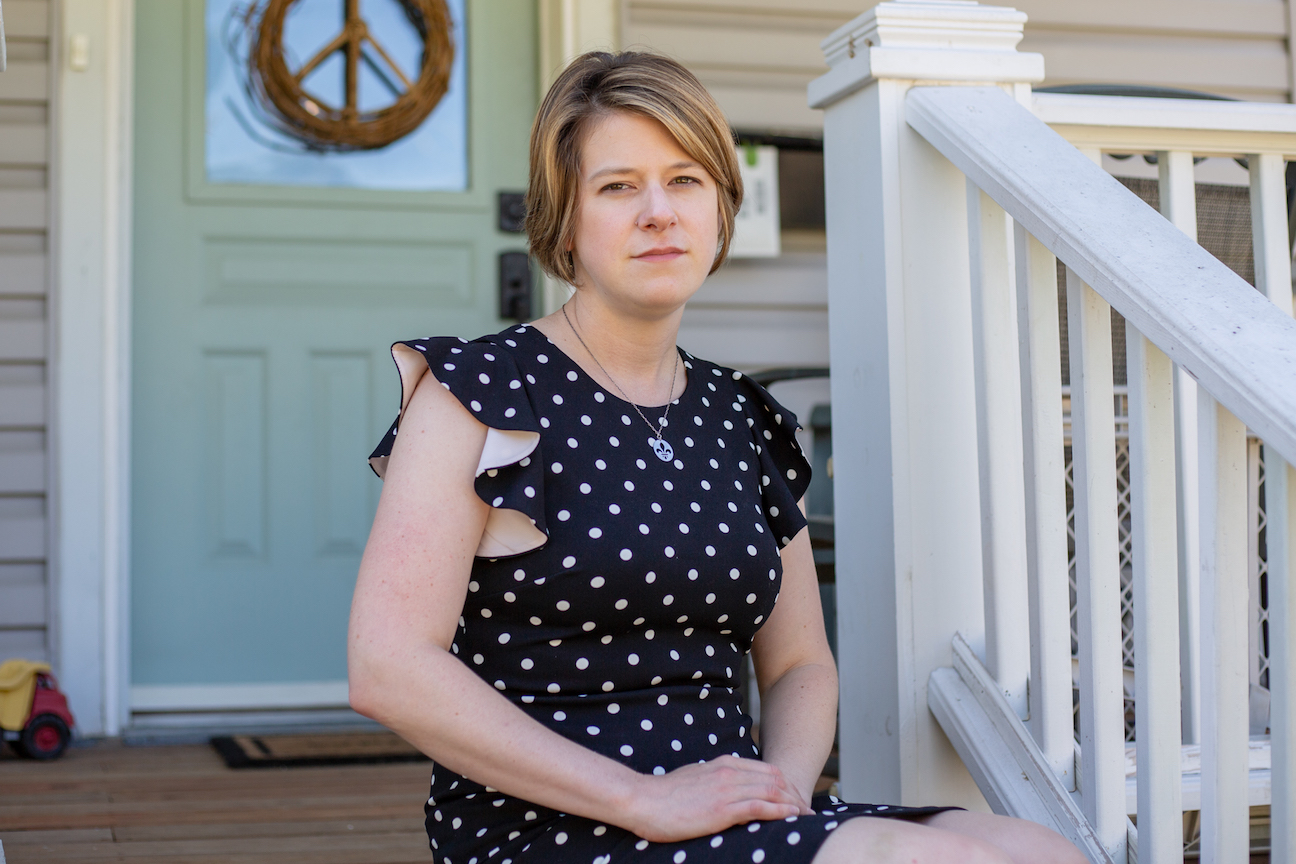
I saw an opportunity to add an unapologetically truthful and bold voice to one of our region’s biggest governments – one that would be an unflinching fighter for Racial Equity.
I have a responsibility to make sure people who are feeling the harms of racism in our region everyday have a voice at the table.
We’ve seen fits and starts of diversity initiatives, but that’s not moving the needle. That’s not the full picture of what we need in our region. There’s some work to build off of, and I was fortunate to join a council where folks have been fighting for a long time. But there wasn’t anyone from my generation, and I didn’t see another White champion.
My primary role is to amplify the voices of people of color and to stand behind what they are calling for. I have a responsibility to make sure people who are feeling the harms of racism in our region every day have a voice at the table. And sometimes I have to be at the front because of the tables I find myself at.
As a policymaker, one of my biggest responsibilities is resources. We have a $650 million-plus budget in St. Louis County, most of which is spent on policing. Even though I still find myself at actions and in the streets side by side with people who are fighting, what the community calls for, I have to answer to. Now I am a decision-maker who gets to allocate and align resources to that end.
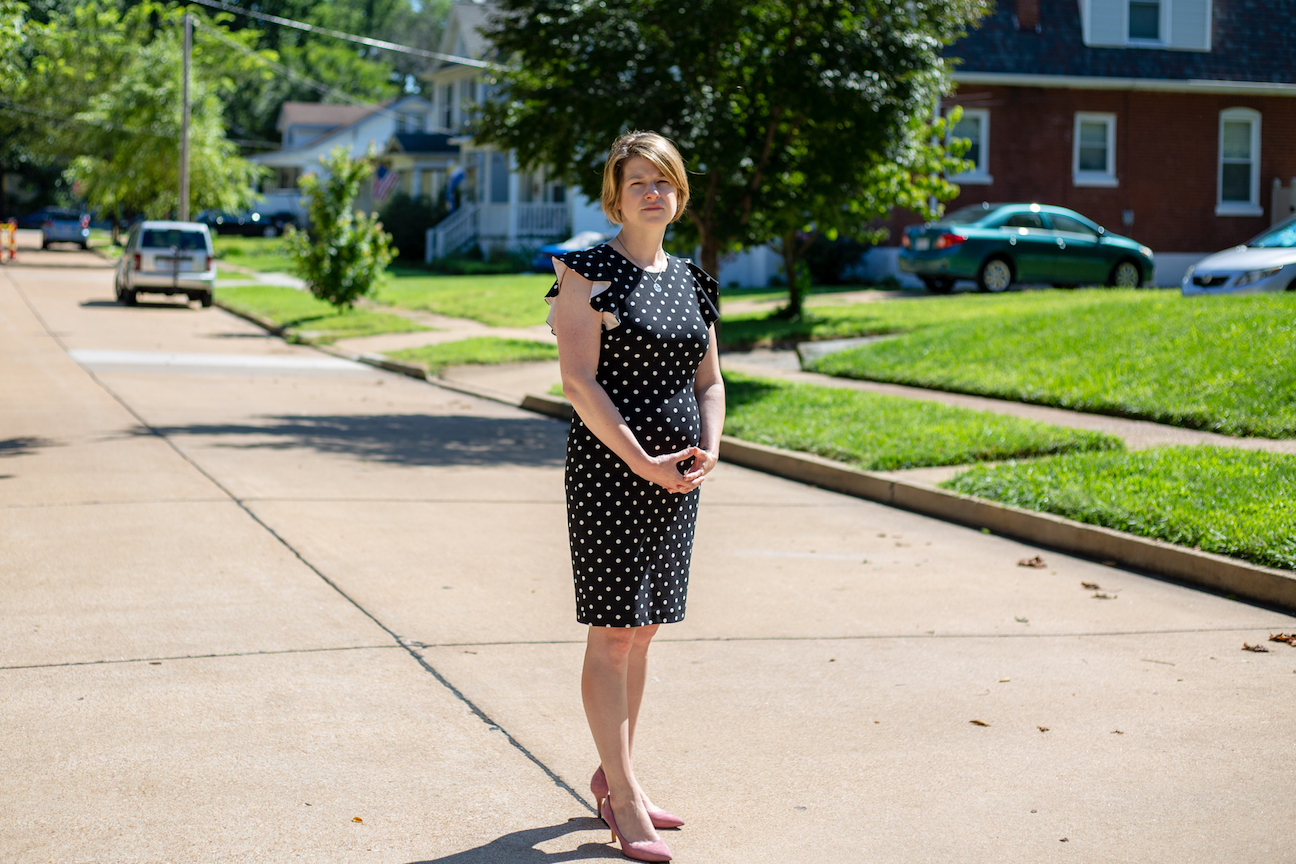
I still have a lot of hope and optimism about where we can get to, but we need more than just one person speaking up. Policy change is a big piece of it; hearts and minds are, too. That looks beyond the council, the legislative body in the county, and the executive branch. It looks to communities that come out and share their opinions about things. I keep hearing people say, ‘Of course we need to stand against discrimination.’ They say the right things about providing fairness, but then I also hear, ‘Don’t we already have all of these things?’ and ‘This isn’t really a problem.’ We’re in a lot of denial about how painful the reality is for so many people here in our region. And we still have a lot of hearts and minds working against Racial Equity.
I introduced a piece of legislation a few months ago known as ‘source of income protection.’ It adds a provision to St. Louis County housing codes that people cannot be discriminated against because of their source of income. It’s getting a lot of opposition because people are assuming it’s about housing choice vouchers. That’s a piece of who the bill would help, but there are people with other subsidies who would be helped, too, like veterans, senior citizens, and people with disabilities. Just over 100 years ago in 1916, St. Louis voted to codify racial segregation in housing. That’s manifested in different ways now in that same hostility we see towards low-income people who rent in our region. It shows in the response to this bill, but also in nuisance ordinances and zoning. It’s disheartening. The ‘how’ to get these things done is still really hard.
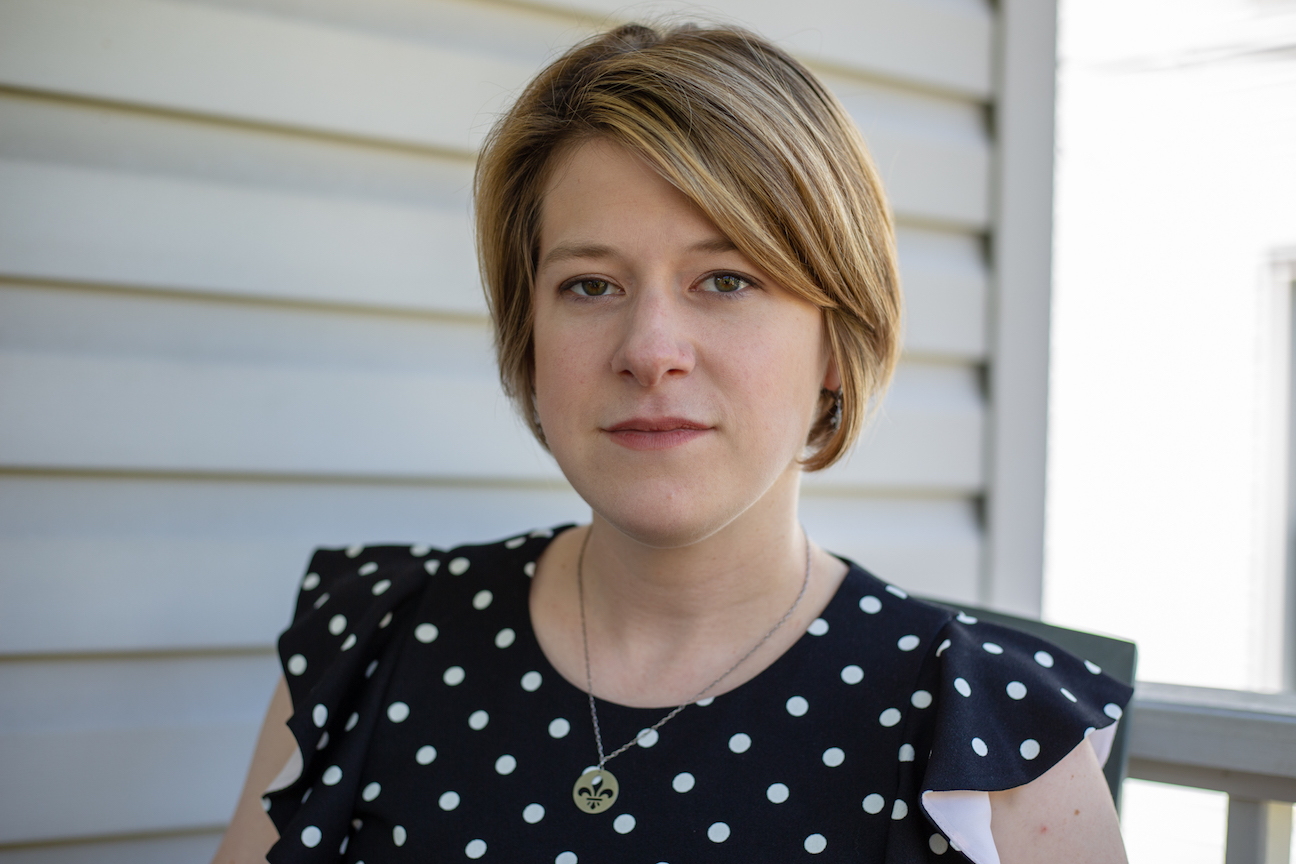
When I see some of the hatred that exists in our country and in our world, it’s often perpetuated by kids who look like mine. And that’s terrifying. I think a lot about how to raise my son to be a big-hearted kid. It’s important for me to expose him to what our world really looks like. I like my neighborhood and my neighbors, but my street isn’t what the world looks like. There are still too many pockets in St. Louis that are that way. I often wonder how it’s subversively continuing to promote harmful attitudes and fears. It is personal to me, but it’s not just about me and my family. Even though my family provided opportunity for me in a lot of ways, I still feel like I missed out on so many. I didn’t grow up with close friends of different races. Everyone at my wedding was White, and that’s not a coincidence. Michael Brown’s death was a turning point for me. A lot of my reflection on that incident and what happened to him made me think about how much he did what he was supposed to do. He graduated from high school, he had a plan for post-secondary, and he was probably touched by a lot of resources and supports in his life. But there was still a gap in systems, so it wasn’t enough to keep him alive. I hope in 2039 we will be living in a place where everyone in our region can confidently say that we will never have something like that happen again.
